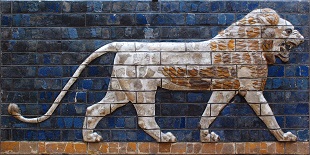
There are many great books on personal finance, and this is an excellent place to start. The author shares simple truths about wealth through the tales of fictional characters who lived in the prosperous Mesopotamian city of Babylon.
The story starts with a chariot craftsman named Bansir who struggles to make ends meet and wants something more. He and his friend Kobbi decide to seek out wisdom from Arkad, the richest man in Babylon. Arkad shares the wisdom he has learned about wealth.
Arkad starts with several key lessons on how to keep money in the bank:
- Wealth is governed by laws, you can acquire wealth by understanding the laws and abiding by them.
- Pay yourself first by saving 10% of your income.
- Control your expenses – “necessary” expenses will grow along with your income unless you work to work hard to not confuse necessary expenses with desires.
- Put your money to work – invest your money and take advantage of compound interest.
- Protect against losses – protect your principal and seek advice from experts.
- Own your home – don’t rent forever, pay yourself instead.
- Establish lasting income sources – plan for retirement and the protection of loved ones.
- Increase your ability to earn – cultivate your skills and study to become better at what you do.
Lending money:
- Better a little caution than a great regret.
- Lend money only to those who you believe will be able to pay you back.
- Diversify risk – lend small amounts to many people rather than a large amount to a single person.
- Think of the income you made from your first year of work and imagine entrusting that with someone.
- Keep tokens to remind you of each loan you’ve made that didn’t get paid back. Learn from those lessons.
Other important lessons:
- Good luck is the reward of those who take action and seek out opportunities.
- Avoid get-rich-quick schemes – if it’s too good to be true then it’s probably too good to be true.
- Avoid investing in areas you are unfamiliar with. Seek advice from subject matter experts.
- Debt – set aside 10% for yourself and 20% for your creditors (if applicable). The remaining 70% is left for your living expenses.
- Wisdom is more important than wealth – wealth flows from wisdom.
- The soul of a free man looks at life as a series of problems to be solved and solves them. The soul of a person in bondage complains, “what can I do?”. Which person are you?
- Don’t let work become an enemy, do what you love and learn to love work.
Personal take-a-ways from this last read:
- Paying yourself first 10% can apply to your time. Why not reserve 10% of each day towards improving skills, study, and person growth?
- Seeking advice can be a crucial part of success. While it’s easy to find useful content online, there’s real value in seeking out advice from actual people. This helps establish relationships and create opportunities for future partnerships. Yes, you can try to go the path alone but then you risk making mistakes you could avoid by talking to someone who has travelled the road before you.
